 Richard III and the Princes in the Tower
Richard III and the Princes in the Tower Britain's Royal Families: The Complete Genealogy
Britain's Royal Families: The Complete Genealogy The Lady in the Tower: The Fall of Anne Boleyn
The Lady in the Tower: The Fall of Anne Boleyn Six Wives of Henry VIII
Six Wives of Henry VIII Elizabeth of York: A Tudor Queen and Her World
Elizabeth of York: A Tudor Queen and Her World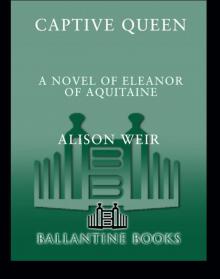 Captive Queen
Captive Queen Innocent Traitor
Innocent Traitor The Marriage Game
The Marriage Game A Dangerous Inheritance
A Dangerous Inheritance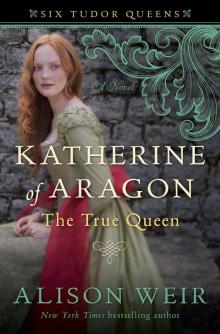 Katherine of Aragón: The True Queen
Katherine of Aragón: The True Queen The Marriage Game: A Novel of Queen Elizabeth I
The Marriage Game: A Novel of Queen Elizabeth I Princes in the Tower
Princes in the Tower Anne Boleyn: A King's Obsession
Anne Boleyn: A King's Obsession Traitors of the Tower
Traitors of the Tower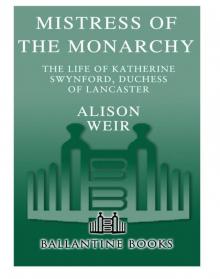 Mistress of the Monarchy: The Life of Katherine Swynford, Duchess of Lancaster
Mistress of the Monarchy: The Life of Katherine Swynford, Duchess of Lancaster Queens of the Conquest: England’s Medieval Queens
Queens of the Conquest: England’s Medieval Queens Eleanor of Aquitaine: A Life
Eleanor of Aquitaine: A Life Mary, Queen of Scots, and the Murder of Lord Darnley
Mary, Queen of Scots, and the Murder of Lord Darnley Henry VIII: The King and His Court
Henry VIII: The King and His Court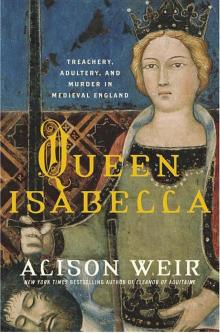 Queen Isabella: Treachery, Adultery, and Murder in Medieval England
Queen Isabella: Treachery, Adultery, and Murder in Medieval England Katheryn Howard, the Scandalous Queen
Katheryn Howard, the Scandalous Queen Arthur- Prince of the Roses
Arthur- Prince of the Roses The Wars of the Roses
The Wars of the Roses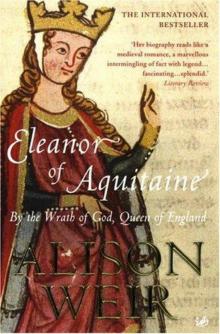 Eleanor of Aquitaine: By the Wrath of God, Queen of England
Eleanor of Aquitaine: By the Wrath of God, Queen of England Mary Boleyn: The Great and Infamous Whore
Mary Boleyn: The Great and Infamous Whore Jane Seymour: The Haunted Queen
Jane Seymour: The Haunted Queen Anna of Kleve, the Princess in the Portrait
Anna of Kleve, the Princess in the Portrait Lancaster and York: The Wars of the Roses
Lancaster and York: The Wars of the Roses The Grandmother's Tale
The Grandmother's Tale The Princess of Scotland (Six Tudor Queens #5.5)
The Princess of Scotland (Six Tudor Queens #5.5) The Lady Elizabeth
The Lady Elizabeth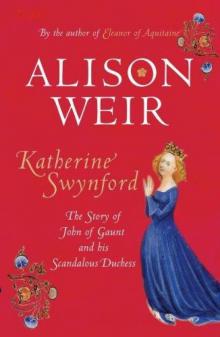 Katherine Swynford: The Story of John of Gaunt and His Scandalous Duchess
Katherine Swynford: The Story of John of Gaunt and His Scandalous Duchess The Curse of the Hungerfords
The Curse of the Hungerfords The Lost Tudor Princess: The Life of Lady Margaret Douglas
The Lost Tudor Princess: The Life of Lady Margaret Douglas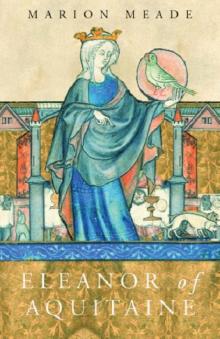 Eleanor of Aquitaine
Eleanor of Aquitaine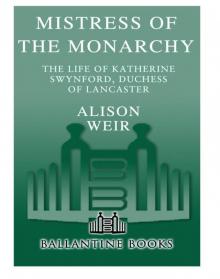 Mistress of the Monarchy
Mistress of the Monarchy The Lost Tudor Princess
The Lost Tudor Princess Henry VIII
Henry VIII Anne Boleyn, a King's Obsession
Anne Boleyn, a King's Obsession A Dangerous Inheritance: A Novel of Tudor Rivals and the Secret of the Tower
A Dangerous Inheritance: A Novel of Tudor Rivals and the Secret of the Tower Elizabeth of York
Elizabeth of York Katherine of Aragon, the True Queen
Katherine of Aragon, the True Queen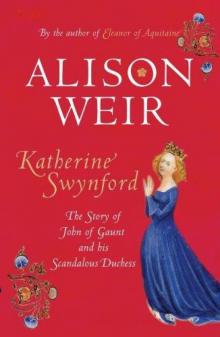 Katherine Swynford
Katherine Swynford Wars of the Roses
Wars of the Roses Queens of the Conquest
Queens of the Conquest Mary Boleyn
Mary Boleyn Britain's Royal Families
Britain's Royal Families The Tower Is Full of Ghosts Today
The Tower Is Full of Ghosts Today Life of Elizabeth I
Life of Elizabeth I Anne Boleyn A King's Obssession
Anne Boleyn A King's Obssession Lancaster and York
Lancaster and York Jane Seymour, the Haunted Queen
Jane Seymour, the Haunted Queen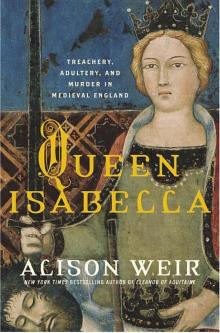 Queen Isabella
Queen Isabella The princes in the tower
The princes in the tower Richard III and the Princes in the Tower
Richard III and the Princes in the Tower Britain's Royal Families: The Complete Genealogy
Britain's Royal Families: The Complete Genealogy The Lady in the Tower: The Fall of Anne Boleyn
The Lady in the Tower: The Fall of Anne Boleyn Six Wives of Henry VIII
Six Wives of Henry VIII Elizabeth of York: A Tudor Queen and Her World
Elizabeth of York: A Tudor Queen and Her World Captive Queen
Captive Queen Innocent Traitor
Innocent Traitor The Marriage Game
The Marriage Game A Dangerous Inheritance
A Dangerous Inheritance Katherine of Aragón: The True Queen
Katherine of Aragón: The True Queen The Marriage Game: A Novel of Queen Elizabeth I
The Marriage Game: A Novel of Queen Elizabeth I Princes in the Tower
Princes in the Tower Anne Boleyn: A King's Obsession
Anne Boleyn: A King's Obsession Traitors of the Tower
Traitors of the Tower Mistress of the Monarchy: The Life of Katherine Swynford, Duchess of Lancaster
Mistress of the Monarchy: The Life of Katherine Swynford, Duchess of Lancaster Queens of the Conquest: England’s Medieval Queens
Queens of the Conquest: England’s Medieval Queens Eleanor of Aquitaine: A Life
Eleanor of Aquitaine: A Life Mary, Queen of Scots, and the Murder of Lord Darnley
Mary, Queen of Scots, and the Murder of Lord Darnley Henry VIII: The King and His Court
Henry VIII: The King and His Court Queen Isabella: Treachery, Adultery, and Murder in Medieval England
Queen Isabella: Treachery, Adultery, and Murder in Medieval England Katheryn Howard, the Scandalous Queen
Katheryn Howard, the Scandalous Queen Arthur- Prince of the Roses
Arthur- Prince of the Roses The Wars of the Roses
The Wars of the Roses Eleanor of Aquitaine: By the Wrath of God, Queen of England
Eleanor of Aquitaine: By the Wrath of God, Queen of England Mary Boleyn: The Great and Infamous Whore
Mary Boleyn: The Great and Infamous Whore Jane Seymour: The Haunted Queen
Jane Seymour: The Haunted Queen Anna of Kleve, the Princess in the Portrait
Anna of Kleve, the Princess in the Portrait Lancaster and York: The Wars of the Roses
Lancaster and York: The Wars of the Roses The Grandmother's Tale
The Grandmother's Tale The Princess of Scotland (Six Tudor Queens #5.5)
The Princess of Scotland (Six Tudor Queens #5.5) The Lady Elizabeth
The Lady Elizabeth Katherine Swynford: The Story of John of Gaunt and His Scandalous Duchess
Katherine Swynford: The Story of John of Gaunt and His Scandalous Duchess The Curse of the Hungerfords
The Curse of the Hungerfords The Lost Tudor Princess: The Life of Lady Margaret Douglas
The Lost Tudor Princess: The Life of Lady Margaret Douglas Eleanor of Aquitaine
Eleanor of Aquitaine Mistress of the Monarchy
Mistress of the Monarchy The Lost Tudor Princess
The Lost Tudor Princess Henry VIII
Henry VIII Anne Boleyn, a King's Obsession
Anne Boleyn, a King's Obsession A Dangerous Inheritance: A Novel of Tudor Rivals and the Secret of the Tower
A Dangerous Inheritance: A Novel of Tudor Rivals and the Secret of the Tower Elizabeth of York
Elizabeth of York Katherine of Aragon, the True Queen
Katherine of Aragon, the True Queen Katherine Swynford
Katherine Swynford Wars of the Roses
Wars of the Roses Queens of the Conquest
Queens of the Conquest Mary Boleyn
Mary Boleyn Britain's Royal Families
Britain's Royal Families The Tower Is Full of Ghosts Today
The Tower Is Full of Ghosts Today Life of Elizabeth I
Life of Elizabeth I Anne Boleyn A King's Obssession
Anne Boleyn A King's Obssession Lancaster and York
Lancaster and York Jane Seymour, the Haunted Queen
Jane Seymour, the Haunted Queen Queen Isabella
Queen Isabella The princes in the tower
The princes in the tower